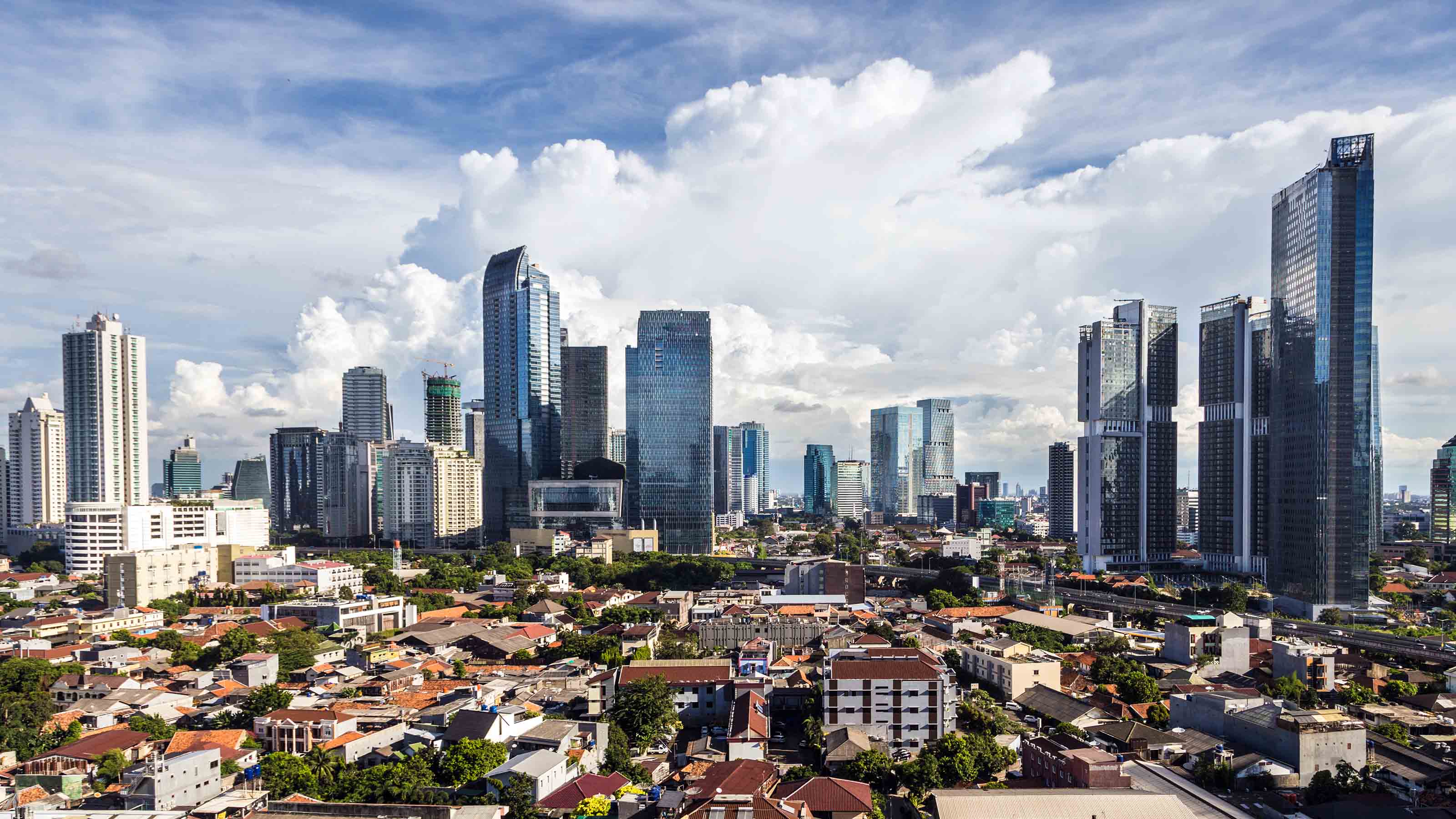Great Opportunities Await in Emerging Markets Bonds
Many countries in Asia and Latin America are financially stronger than most developed nations -- and their bonds offer generous yields.

Profit and prosper with the best of Kiplinger's advice on investing, taxes, retirement, personal finance and much more. Delivered daily. Enter your email in the box and click Sign Me Up.
You are now subscribed
Your newsletter sign-up was successful
Want to add more newsletters?

Delivered daily
Kiplinger Today
Profit and prosper with the best of Kiplinger's advice on investing, taxes, retirement, personal finance and much more delivered daily. Smart money moves start here.

Sent five days a week
Kiplinger A Step Ahead
Get practical help to make better financial decisions in your everyday life, from spending to savings on top deals.

Delivered daily
Kiplinger Closing Bell
Get today's biggest financial and investing headlines delivered to your inbox every day the U.S. stock market is open.

Sent twice a week
Kiplinger Adviser Intel
Financial pros across the country share best practices and fresh tactics to preserve and grow your wealth.

Delivered weekly
Kiplinger Tax Tips
Trim your federal and state tax bills with practical tax-planning and tax-cutting strategies.

Sent twice a week
Kiplinger Retirement Tips
Your twice-a-week guide to planning and enjoying a financially secure and richly rewarding retirement

Sent bimonthly.
Kiplinger Adviser Angle
Insights for advisers, wealth managers and other financial professionals.

Sent twice a week
Kiplinger Investing Weekly
Your twice-a-week roundup of promising stocks, funds, companies and industries you should consider, ones you should avoid, and why.

Sent weekly for six weeks
Kiplinger Invest for Retirement
Your step-by-step six-part series on how to invest for retirement, from devising a successful strategy to exactly which investments to choose.
The U.S. faces risks from its debt overhang and uncertainty over when Congress will raise the debt ceiling. Europe and Japan, if anything, face even worse debt crises. But many countries, primarily developing nations, are growing rapidly and boast strong finances.
It’s hard for me to come up with a sound reason not to invest in bonds from emerging markets through a good mutual fund. I’ll talk about a couple of no-load funds in a minute, but one of the best records among foreign bond funds belongs to Templeton Global Bond. The fund, which is sold through brokers and other advisers, generally levies a sales charge. Its no-load adviser class shares (symbol TGBAX) are typically sold through intermediaries who tack on their own asset-based fees, although the adviser class is sometimes available without additional charges in 401(k) plans. Steered by Michael Hasenstab, Global Bond’s adviser class returned an annualized 12.8% over the past ten years through June 6. That puts it in the top 1% of international bond funds, according to Morningstar.
Hasenstab, 37, the skipper since 2001, heads a team that supervises $125 billion in U.S. and offshore foreign bond funds in a variety of flavors. Individual investors can also buy Templeton Global Income (GIM), a closed-end fund. Unfortunately, that fund, at its June 6 closing price of $10.77, traded at a rich 6% premium to its net asset value per share. My favorite for those of you who use an adviser is Templeton Global Total Return Adv (TTRZX), launched in 2008, because it holds corporate bonds in addition to bonds of foreign governments (Global Bond holds only sovereign debt). Templeton’s Adv funds are no load and carry the lowest expense ratio of any of the Templeton funds.
From just $107.88 $24.99 for Kiplinger Personal Finance
Become a smarter, better informed investor. Subscribe from just $107.88 $24.99, plus get up to 4 Special Issues

Sign up for Kiplinger’s Free Newsletters
Profit and prosper with the best of expert advice on investing, taxes, retirement, personal finance and more - straight to your e-mail.
Profit and prosper with the best of expert advice - straight to your e-mail.
More than half of the assets of all of these funds are invested in emerging markets, mostly in Asia. The funds own bonds and currencies in Indonesia, South Korea, Malaysia and Singapore. In Latin America, it invests in Brazil, Chile and Mexico, and in Eastern Europe, it owns Hungarian, Polish and Ukrainian bonds and currencies. “You can pick up a nice yield without taking much interest-rate or credit risk in many emerging markets,” Hasenstab says. Total Return yields 4.2%. If interest rates on similar bonds rise by one percentage point, the fund should lose a mere 2.4% of its value.
Hasenstab isn’t against investing in the developed world. He just wants to invest in the healthiest developed nations. Currently, that includes countries such as Australia, Norway and Sweden.
Hasenstab is bearish on the yen. His stance on Japan exemplifies his long-term approach. After the disastrous earthquake and tsunami that struck Japan, the yen rose sharply, as anticipated, because Japan repatriated assets from abroad. But Hasenstab believes Japan will have to keep monetary policy looser for longer than any other major country -- and that eventually will depress its currency.
He’s bullish on the currencies of Poland and Sweden compared with the euro, but neutral on the euro versus the dollar. Greece must restructure its debt, and Portugal faces huge problems, too, but Hasenstab thinks Europe will ultimately be able to contain its problems to those two small countries. “It won’t be a Lehman-type event,” he says, referring to the collapse of Lehman Brothers in September 2008, which triggered the global financial crisis.
He currently has more than 40% of the assets in all of his broad-based funds in dollar-denominated securities. He says he doesn’t have greater exposure to the dollar because he’s concerned that monetary policy remains too easy in the U.S. and that Congress won’t do much before the 2012 elections to remedy the U.S.’s huge budget shortfall.
Hasenstab isn’t worried by the spate of weak economic numbers in the U.S. “Most likely, U.S. growth will be at a rate of 2% to 3% for the rest of this year. There are normal ebbs and flows in a recovery. I don’t think we should read too much into this soft patch. A double dip recession is a very low risk.”
In fact, the softening in the U.S. is just what the doctor ordered for many emerging nations, which are battling inflation -- so far successfully. “They’re staying ahead of the curve and keeping inflation from becoming entrenched.” Among other things, a slowdown in the U.S. economy means less demand for goods and services from emerging markets, helping to contain prices in those countries.
Hasenstab doesn’t run the funds alone. He has 14 professionals on his team and calls on 26 other bond experts around the globe. Franklin Templeton has another 90 bond professionals from which the funds get many of their individual bond picks.
Another big plus for Hasenstab’s funds: their low volatility. Pimco Emerging Local Bond D (PLBDX), a no load that invests solely in emerging markets, has been about twice as volatile as Templeton Global Bond over the past three years. Nevertheless, Pimco and the newly hatched T. Rowe Price Emerging Markets Local Currency Bond Fund (PRELX) are both good choices. But Hasenstab’s funds are the pick of the litter.
Steven T. Goldberg (bio) is an investment adviser in the Washington, D.C. area.
Profit and prosper with the best of Kiplinger's advice on investing, taxes, retirement, personal finance and much more. Delivered daily. Enter your email in the box and click Sign Me Up.

-
 How Much It Costs to Host a Super Bowl Party in 2026
How Much It Costs to Host a Super Bowl Party in 2026Hosting a Super Bowl party in 2026 could cost you. Here's a breakdown of food, drink and entertainment costs — plus ways to save.
-
 3 Reasons to Use a 5-Year CD As You Approach Retirement
3 Reasons to Use a 5-Year CD As You Approach RetirementA five-year CD can help you reach other milestones as you approach retirement.
-
 Your Adult Kids Are Doing Fine. Is It Time To Spend Some of Their Inheritance?
Your Adult Kids Are Doing Fine. Is It Time To Spend Some of Their Inheritance?If your kids are successful, do they need an inheritance? Ask yourself these four questions before passing down another dollar.
-
 White House Probes Tracking Tech That Monitors Workers’ Productivity: Kiplinger Economic Forecasts
White House Probes Tracking Tech That Monitors Workers’ Productivity: Kiplinger Economic ForecastsEconomic Forecasts White House probes tracking tech that monitors workers’ productivity: Kiplinger Economic Forecasts
-
 Investing in Emerging Markets Still Holds Promise
Investing in Emerging Markets Still Holds PromiseEmerging markets have been hit hard in recent years, but investors should consider their long runway for potential growth.
-
 Stocks: Winners and Losers from the Strong Dollar
Stocks: Winners and Losers from the Strong DollarForeign Stocks & Emerging Markets The greenback’s rise may hurt companies with a global footprint, but benefit those that depend on imports.
-
 5 Exciting Emerging Markets Funds to Buy
5 Exciting Emerging Markets Funds to BuyForeign Stocks & Emerging Markets Emerging markets funds haven't been immune to global inflationary pressures. But now might be the time to strike on these high-risk, high-reward products.
-
 African Stocks: Investing in the Last Great Emerging Market
African Stocks: Investing in the Last Great Emerging MarketForeign Stocks & Emerging Markets A massive middle class and rapid technology-enabled development could turn African stocks into growth darlings over the next two decades.
-
 ESG Gives Russia the Cold Shoulder, Too
ESG Gives Russia the Cold Shoulder, TooESG MSCI jumped on the Russia dogpile this week, reducing the country's ESG government rating to the lowest possible level.
-
 India Is on a Tear
India Is on a TearForeign Stocks & Emerging Markets Massive modernization presents opportunities for investors.
-
 Wasatch Emerging Markets Small Cap Goes Its Own Way
Wasatch Emerging Markets Small Cap Goes Its Own WayForeign Stocks & Emerging Markets This emerging-markets stock fund isn't afraid to stray from the pack.